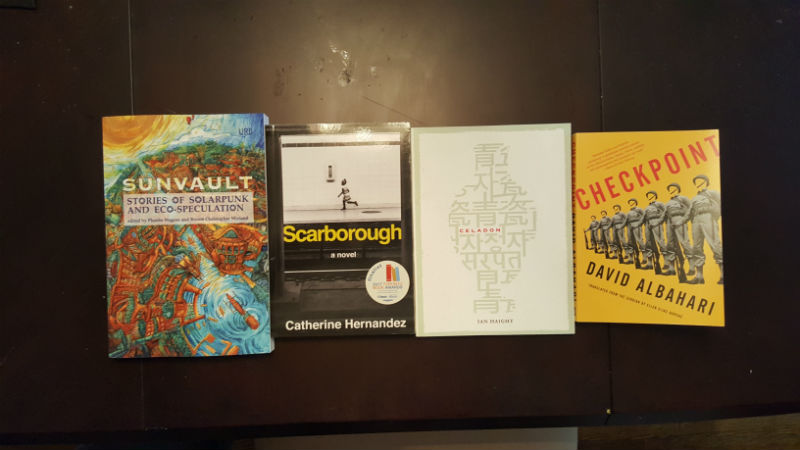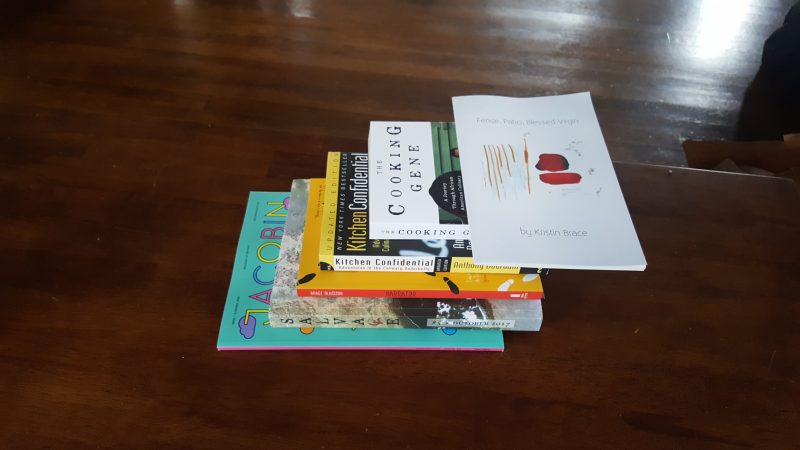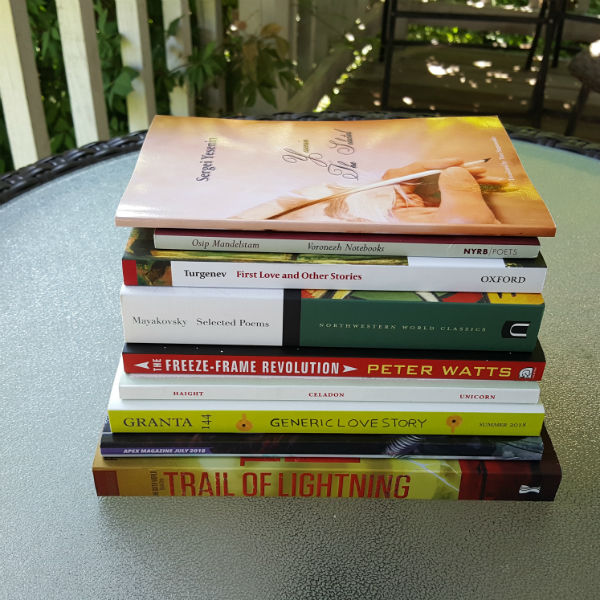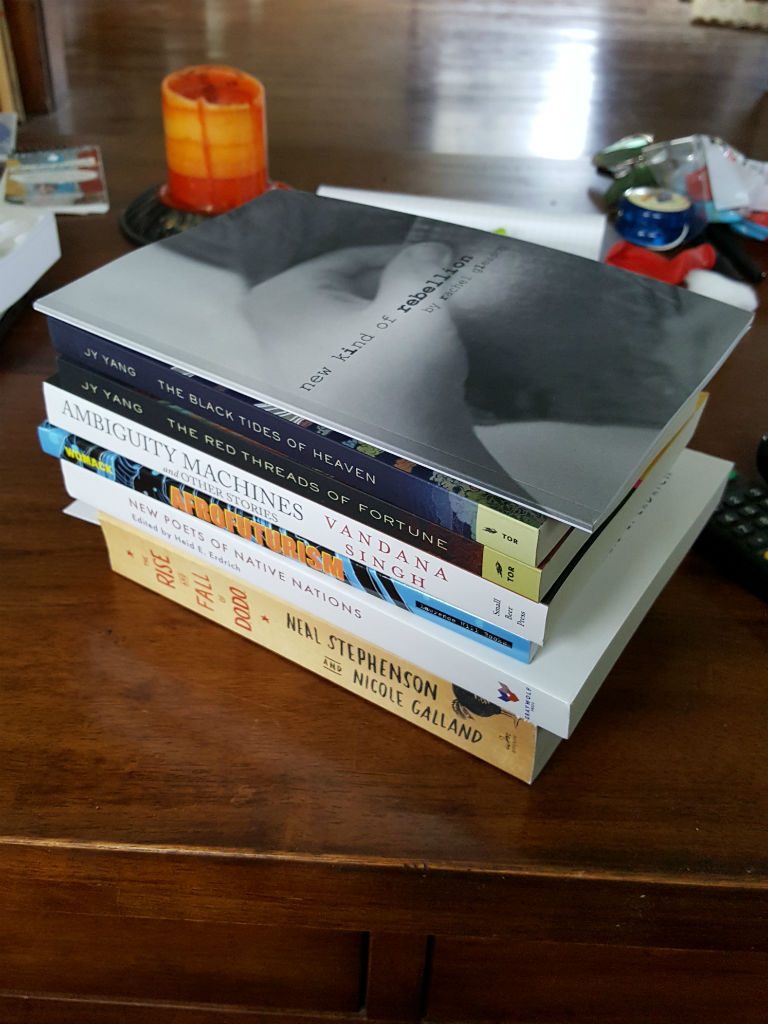In line with my stated goals for the the Year of the Dog, I have given myself a couple of personal projects.
Every day this year, I will think up an idea for a game. Computer game, board game, card game, logic puzzle… all are fair game. Heh.
And every day this year, I will write a poem. Haiku, sonnet, blank verse, random gibberish…good or not, it will help me get my head back into the space it was many years ago, before I began spending so much time staring at computers.
If I come up with anything particularly interesting or good, I will post it here. And if one of my ideas turns into an actual game, I will also post it here.
Here is an example computer game which I came up with today:
You are stationed on an asteroid in space, in the middle of an ion cloud. Enemies are approaching! Your only defense is a (bottomless) crate of capacitors and a, uh, capacitor launcher. When the capacitor reaches a predetermined location, it discharges and electricity arcs between your base and the capacitor, frying anything which gets in the way.
Gameplay is as follows:
Your base is in the center of the screen.
Enemies drift around out in space, and occasionally spiral in to ram you.
Click the screen to launch a capacitor from your base to the area you just clicked.
When the capacitor reaches that point, electricity discharges in a straight line between the base and the capacitor.
Any Enemy touched by the electricity is destroyed.
Powerups are occasionally released by dead enemies, and drift toward your base.
If you shoot the powerup it is destroyed
Powerups include extra lives, shields, a faster-flying capacitor, improved rate of fire, multiple arcs, and possibly a smart-bomb type weapon.
I don’t think this game would be too difficult to program. I just need to sit down and program it.




